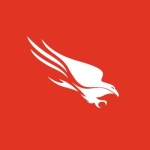I used the Webroot cloud application to install it on my computers. It has to be installed on each computer, but it's managed through the Webroot cloud application.
I use this solution to keep malware out of my system.
I have five servers on it, and four employees with additional laptops — we process payrolls here. We do all kinds of different things, including accounting.
With malware protection, it doesn't change how your business functions; you simply expect it to do its job. For this reason, I would say nothing has changed. I haven't had any problems, so I hope that continues.
There aren't any features that really stand out — I just want it to keep malware out of my system. To date, I haven't had any malware in my system.
I did notice that my OS slowed down, but I don't know if that's due to Webroot.
I have been using Webroot Business Endpoint Protection for one year.
I haven't experienced any issues stability-wise — no bugs, glitches, or crashing.
I have five servers and about a half-a-dozen or more workstations running it. Scalability-wise, it's great.
I had to contact technical support one time, and they were great. I would give their technical support a rating of 10 out of 10. They were really good. They answered the phone very quickly and helped me resolve the problem very quickly. I was really quite surprised how good they were.
I used to use Symantec Endpoint Protection. I would have preferred to continue using Symantec Endpoint Protection, but last year, I don't know what happened to their infrastructure but they completely destroyed themselves. I couldn't contact them for a month and I couldn't renew my Symantec subscription, so I went with Webroot. Otherwise, I'd probably still be on Symantec.
Symantec was being bought out by Broadcom. My licenses were due at exactly the very timeframe they were being bought out. I called every Symantec phone number I could find, every broadband phone number I could find, every Symantec retailer I could find. Nobody could get a Symantec license. I could not renew my Symantec licenses. As such, I checked out some recommended solutions and chose Webroot. I'd probably still be on Symantec because Symantec always did a good job for me although Symantec was much more expensive.
I think I did a comparison back when I switched and it looked like they did about the same things. I'm sure there are more features that I could implement, but I've implemented on as many as I'm aware of. I haven't explored everything yet.
Apparently, is more complex than I originally thought. I had my server set up wrong initially which caused some slow down. But other than that, it was fairly easy.
I think the price is fairly reasonable. I was really prepared to pay more, but the price is fine.
I'd recommend this solution. Overall, on a scale from one to ten, I'd give Webroot a rating of nine. It's hard for me to say just how good it is as I haven't ever been hit by any malware. I guess it's doing its job.



















